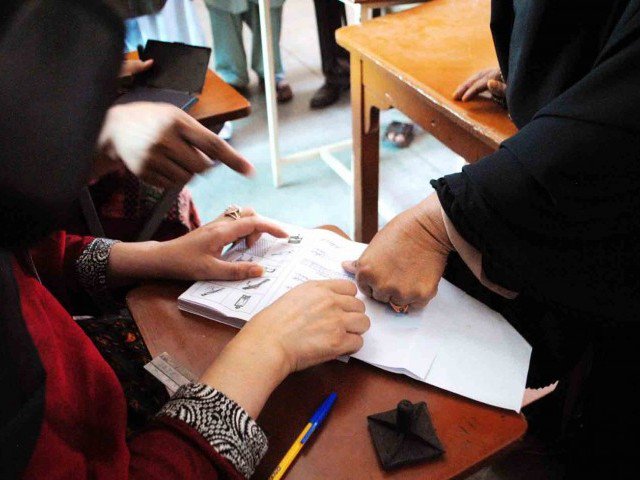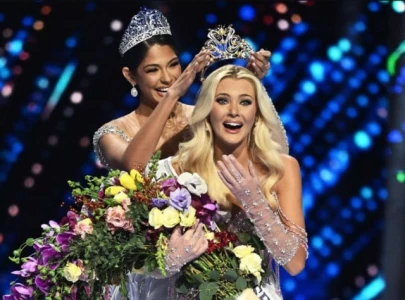
There was a wave of optimism when the provincial government decided to subdivide union councils and allocate two reserved seats for women in all village and neighbourhood councils. However, over 22% or 321 seats remain vacant from Battagram, Torghar, Mansehra, Abbottabad and Haripur districts. These districts have 1,426 seats reserved for women at the village and neighbourhood level.
In Battagram and Torghar district, where tribal conventions hold sway and the literacy rate remains low, candidates could not apply for at least 90% of women seats. Insiders familiar with the matter told The Express Tribune, a patriarchal mindset and lack of awareness prevented women from contesting elections.
Sar Buland Khan, a social activist from Battagram, says influential political families do not want women’s seats to fall vacant and tend to nominate women from their families for these berths. “Sometimes they even file nomination papers on behalf of their domestic help,” he said. “However, they never allow women from their families to attend any meetings or public gatherings.”
Facts and figures
According to data provided by the Election Commission of Pakistan, for 90 village and neighbourhood councils in Battagram, 180 seats are to be filled by women. However, 102 seats remain vacant; 60 women were elected unopposed.
In Torghar district, there are 80 seats for women councillors at 40 village and neighbourhood councils. Only 16 were elected unopposed while not a single woman contestant filed papers for 62 seats.
At least 38 seats are vacant out of 388 seats for women in Mansehra district – 137 women were elected unopposed and 374 are contesting for 99 seats. Meanwhile, Abbottabad – where the literacy rate is high and women are actively involved in the political sphere – has 418 seats for women. Yet, 56 seats are vacant and 208 candidates have been elected unopposed. There are 284 contestants for 99 seats. Haripur has 63 vacant seats out of 360 seats while women were elected unopposed on 35 seats.
Challenges and solutions
Aurat Association Executive Director Malik Akbar believed patriarchy and male chauvinism is to blame for women’s seats falling vacant.
“Even though NGOs and government organisations have spent billions to build awareness regarding the role of women in governance, the situation has not improved,” he said.
In line with Sar Buland’s explanations, Akbar said women in rural areas are only allowed to contest for polls if they have considerable backing from influential groups.

“These women have connections with influential families,” he added.
Gulnaz Shah, a social activist and former member of Public Safety Commissions, said the seats have fallen vacant due to lack of awareness and the complex procedure chalked out for the polls.
“The system introduced by General (retd) Pervez Musharraf in 2001 was far better than the existing one,” she said.
“The current mechanism for reserved seats for women at the district and tehsil level is complicated and makes candidates subservient to political parties.”
Shah urged the ECP to take notice of these vacant seats and guarantee the full participation of women.
Khalid Waheed, a retired divisional election commissioner, told The Express Tribune cultural barriers coupled with a tribal mindset discouraged women from participating in the polls.
“The ECP will, as per rules, hold by-elections on these vacant seats,” he added.
Published in The Express Tribune, May 22nd, 2015.





1732621030-0/Express-Tribune-(7)1732621030-0-270x192.webp)
1732622842-0/Express-Tribune-(9)1732622842-0-270x192.webp)

1725254039-0/Untitled-design-(24)1725254039-0-270x192.webp)

1732617223-0/Untitled-design-(69)1732617223-0-270x192.webp)






COMMENTS (1)
Comments are moderated and generally will be posted if they are on-topic and not abusive.
For more information, please see our Comments FAQ